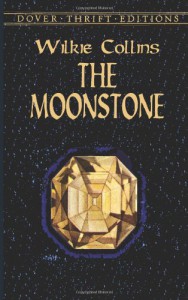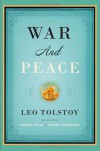
My first introduction to Wilkie Collins was through his most famous novel, The Woman In White, which I read and loved in my pre-blogging days. I enjoyed it so much I promised myself I would read another Collins novel before too long, but it's only now, years later, that I've picked up The Moonstone. And I'm pleased to report that it was worth the wait.The Moonstone is about a cursed Indian yellow diamond, plundered from a sacred site by Englishman John Herncastle. On his death he bequeaths the stone to his niece, heiress Rachel Verinder, as an act of spite towards her mother, in full knowledge that Rachel will now become the target of plots and murderous Hindu priests. Rachel receives the stone on her birthday but it is stolen on the very same night. With relatives, servants and Hindu priests in the frame, who stole the diamond and what happened to it?Collins is one of those authors I recommend to people who think that classic novels are slow, boring, pretentious and stuffy. Both The Woman In White and The Moonstone are fast-paced, sensational and completely unputdownable. In The Moonstone, there is suicide, murder, disguise, sinister intentions and cursed jewels. It's an adventure-mystery that was a blockbuster on publication and remains a gripping read to this day;"If he was right, here was our quiet English house suddenly invaded by a devilish Indian Diamond - bringing after it a conspiracy of living rogues, set loose on us by the vengeance of a dead man." (p33)It goes without saying that the book was well written and like The Woman In White, it's written from the viewpoint of several witnesses, on the behest of a relative of Rachel's who is attempting to clear his own name. I very much enjoyed this writing style as Collins had made each of the narrators distinct from each other; it felt like many people were telling the story, not just the author. My favourite narrator was Rachel's relative Miss Clack, an evangelical Christian who was bent on converting everyone around her.The mystery was well thought out too, on several occasions I thought I had worked out who had stolen the stone only for events to completely change my mind. The resolution when it came was a surprise, mainly because it was so rooted in Victorian sensibilities. In fact, that's my only criticism of this book; the big reveal is something that I think could only be appreciated by Victorian readers as 'science' has changed so much now, so this part of the novel felt a little dated. I must also say how much I enjoyed the edition I read (Oxford World's Classics). The notes were informative and the introduction was a good example of a well written essay on the book. Once I finished the story, I went back and read the introduction and notes (this turned out to be the right way round to do things as there were spoilers) and felt like I gained a lot of knowledge about the author and how the book was written. I was aware that Collins was friends with Dickens but didn't know how much they influenced each other or how addicted Collins was to opium, a fact which explained quite a lot about The Moonstone. So if you are looking to purchase this book, I'd recommend the Oxford edition.
 My first introduction to Wilkie Collins was through his most famous novel, The Woman In White, which I read and loved in my pre-blogging days. I enjoyed it so much I promised myself I would read another Collins novel before too long, but it's only now, years later, that I've picked up The Moonstone. And I'm pleased to report that it was worth the wait.The Moonstone is about a cursed Indian yellow diamond, plundered from a sacred site by Englishman John Herncastle. On his death he bequeaths the stone to his niece, heiress Rachel Verinder, as an act of spite towards her mother, in full knowledge that Rachel will now become the target of plots and murderous Hindu priests. Rachel receives the stone on her birthday but it is stolen on the very same night. With relatives, servants and Hindu priests in the frame, who stole the diamond and what happened to it?Collins is one of those authors I recommend to people who think that classic novels are slow, boring, pretentious and stuffy. Both The Woman In White and The Moonstone are fast-paced, sensational and completely unputdownable. In The Moonstone, there is suicide, murder, disguise, sinister intentions and cursed jewels. It's an adventure-mystery that was a blockbuster on publication and remains a gripping read to this day;"If he was right, here was our quiet English house suddenly invaded by a devilish Indian Diamond - bringing after it a conspiracy of living rogues, set loose on us by the vengeance of a dead man." (p33)It goes without saying that the book was well written and like The Woman In White, it's written from the viewpoint of several witnesses, on the behest of a relative of Rachel's who is attempting to clear his own name. I very much enjoyed this writing style as Collins had made each of the narrators distinct from each other; it felt like many people were telling the story, not just the author. My favourite narrator was Rachel's relative Miss Clack, an evangelical Christian who was bent on converting everyone around her.The mystery was well thought out too, on several occasions I thought I had worked out who had stolen the stone only for events to completely change my mind. The resolution when it came was a surprise, mainly because it was so rooted in Victorian sensibilities. In fact, that's my only criticism of this book; the big reveal is something that I think could only be appreciated by Victorian readers as 'science' has changed so much now, so this part of the novel felt a little dated. I must also say how much I enjoyed the edition I read (Oxford World's Classics). The notes were informative and the introduction was a good example of a well written essay on the book. Once I finished the story, I went back and read the introduction and notes (this turned out to be the right way round to do things as there were spoilers) and felt like I gained a lot of knowledge about the author and how the book was written. I was aware that Collins was friends with Dickens but didn't know how much they influenced each other or how addicted Collins was to opium, a fact which explained quite a lot about The Moonstone. So if you are looking to purchase this book, I'd recommend the Oxford edition.
My first introduction to Wilkie Collins was through his most famous novel, The Woman In White, which I read and loved in my pre-blogging days. I enjoyed it so much I promised myself I would read another Collins novel before too long, but it's only now, years later, that I've picked up The Moonstone. And I'm pleased to report that it was worth the wait.The Moonstone is about a cursed Indian yellow diamond, plundered from a sacred site by Englishman John Herncastle. On his death he bequeaths the stone to his niece, heiress Rachel Verinder, as an act of spite towards her mother, in full knowledge that Rachel will now become the target of plots and murderous Hindu priests. Rachel receives the stone on her birthday but it is stolen on the very same night. With relatives, servants and Hindu priests in the frame, who stole the diamond and what happened to it?Collins is one of those authors I recommend to people who think that classic novels are slow, boring, pretentious and stuffy. Both The Woman In White and The Moonstone are fast-paced, sensational and completely unputdownable. In The Moonstone, there is suicide, murder, disguise, sinister intentions and cursed jewels. It's an adventure-mystery that was a blockbuster on publication and remains a gripping read to this day;"If he was right, here was our quiet English house suddenly invaded by a devilish Indian Diamond - bringing after it a conspiracy of living rogues, set loose on us by the vengeance of a dead man." (p33)It goes without saying that the book was well written and like The Woman In White, it's written from the viewpoint of several witnesses, on the behest of a relative of Rachel's who is attempting to clear his own name. I very much enjoyed this writing style as Collins had made each of the narrators distinct from each other; it felt like many people were telling the story, not just the author. My favourite narrator was Rachel's relative Miss Clack, an evangelical Christian who was bent on converting everyone around her.The mystery was well thought out too, on several occasions I thought I had worked out who had stolen the stone only for events to completely change my mind. The resolution when it came was a surprise, mainly because it was so rooted in Victorian sensibilities. In fact, that's my only criticism of this book; the big reveal is something that I think could only be appreciated by Victorian readers as 'science' has changed so much now, so this part of the novel felt a little dated. I must also say how much I enjoyed the edition I read (Oxford World's Classics). The notes were informative and the introduction was a good example of a well written essay on the book. Once I finished the story, I went back and read the introduction and notes (this turned out to be the right way round to do things as there were spoilers) and felt like I gained a lot of knowledge about the author and how the book was written. I was aware that Collins was friends with Dickens but didn't know how much they influenced each other or how addicted Collins was to opium, a fact which explained quite a lot about The Moonstone. So if you are looking to purchase this book, I'd recommend the Oxford edition.





